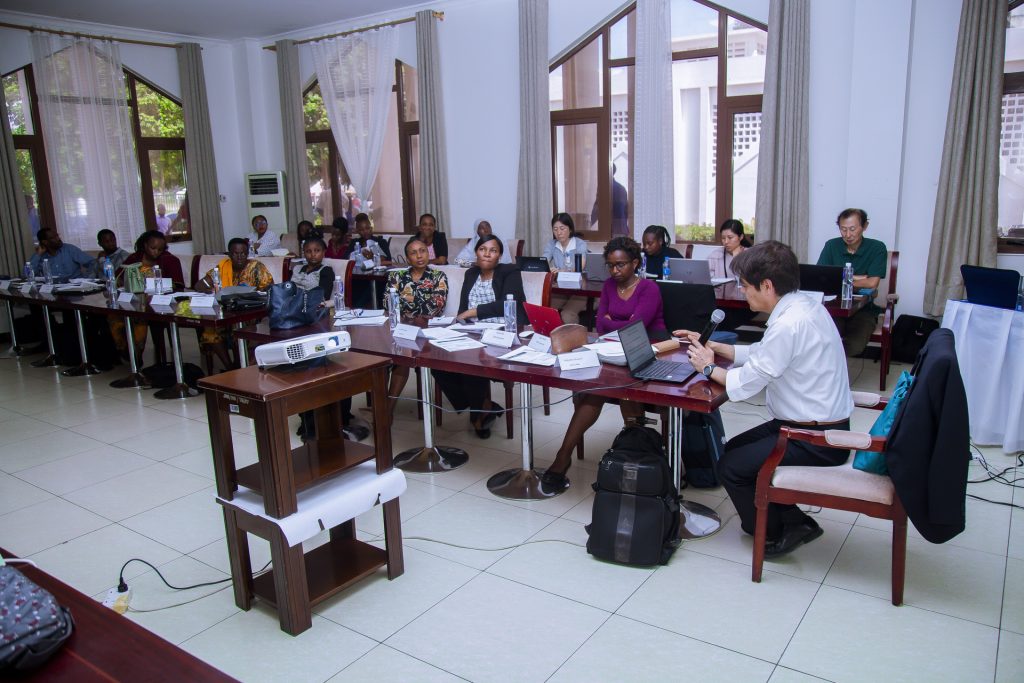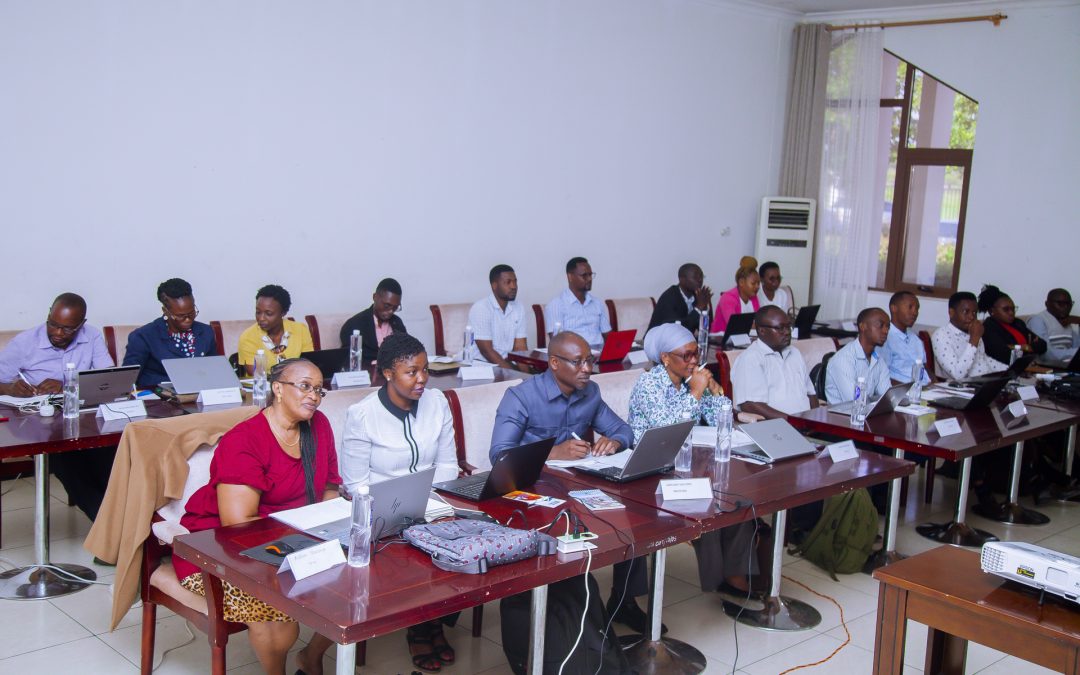IFNA carried out the regional training program based on IFNA’s approaches, particularly Multi Sectoral Approach (MSA) and Nutrient Focused Approach (NFA), from 11 to 13 October 2023, at Dar es Salaam, Tanzania.
One of the participants from Tanzania Food and Nutrition Centre (TFNC) showed great interest in the approaches of IFNA, and requested the in-country training for the Tanzanian officials to further disseminate the approaches. In response to the request, IFNA decided to support their implementation of training, which was held from 6 to 8 February 2024, at Dodoma, Tanzania.
The main objective of the training is to increase and enhance the knowledge and skills of the participants to better contextualize multi-sectoral nutrition sensitive programming with regard to food and nutrition security policy of the regions they belong, and to ensure access to resources for implementation.
Expected outcomes:
1) Understand the basic and underlying causes of malnutrition to identify and plan to fill the nutrition gaps
2) Describe the linkages and complementarity among different sectors that contribute to nutrition improvement
3) Apply the concept of Multisectoral Approach (MSA) and Nutrient Focused Approach (NFA), analyze the nutrition gap in their responsible areas (macro-level analysis), and identify locally available nutrition dense foods to fill the gap
4) Identify priority nutrition issues and potential interventions to be included in the Multisectoral Action Plans: design the nutrition-sensitive interventions
Participants:
1) Regional Nutrition Officers from 25 regions of Tanzania
2) Five staff from TFNC
3) One staff from President’s Office Regional Administration and Local Government (PORARG)
These are government officials located at regions and local-government levels. Their roles are to plan, coordinate, implement, and monitor nutrition activities within their responsible areas. The Nutrition Officers are also the coordinators, provide technical assistance to nutrition- sensitive sectors, and serve as the secretariat of regional/council multi-sectoral nutrition steering committees. (In total, 31 participants)
Outcomes of the training:
The training was smoothly conducted and successfully closed after the 3-day sessions. Through this training, the participants were well exposed to the IFNA’s two approaches―MSA and NFA.
Instruction by the lecturer (Dr. Nakada from JICA) and the facilitators (Ms. Angela from IFNA Secretariat; Ms. Rose from TFNC) on the main topics of this training (i.e., Gap analysis, NFA, etc.) was well accepted for the participants. The participants could learn effective methods for nutrition improvement through the introduction and practice of the NFA based on an agricultural perspective and multisectoral collaboration. At the end of training, each group of participants (the participants from 25 regions of Tanzania were divided into 8 groups in accordance with their geographical locations) was encouraged to develop the action plan (i.e., draft project proposal) based on the NFA.
One of the objectives in this training is that the participants recognize importance of planning the activities on the basis of quantitative data and/or proxy data. These data enable us to compare the nutrition status beyond target areas, based on evidences. The Managing Director of TFNC (Dra. Germana), at her opening remark, pointed the importance of NFA through which multi-sectoral nutrition interventions can be prioritized (i.e., the actions/projects submitted from various ministries can be compared on the basis of common indicators). She highly appreciated the NFA and this training program for its usefulness when planning/implementing the projects with inter-ministerial engagement. Indeed, from the participants’ comments that they recognized the “power of data” through this training and that they understand how to analyze the nutrition status by using available data, we could understand the NFA, with which the data analysis was instructed in the current training, plausibly contributed to changes of their mind/ability for planning/prioritizing multi-sectoral/various interventions.
Several groups of the participants mentioned the prevalence of anemia (particularly among children and women) as priority issues. Importance of interventions in such common issues at national level, together with the actions taken at sub-national/local levels, was guaranteed; this issue (prevalence of anemia) was raised in the previous regional training for EAC member states as their common issue. Potentials of support for Tanzania or of regional supports (beyond the country), from RECs and/or the other development partners (including JICA), which might be facilitated by IFNA, could be considered.
Program and duration of this training almost followed the two regional trainings carried out with ECCAS and EAC in 2023. Compared with these trainings, the current training stressed to the participants that they make draft project proposals more specific/feasible. They were encouraged to refer to on-going and/or previously implemented projects in the target areas of proposed projects, as well as to the possibilities of following or collaborating with such concerned projects. Planning the project interventions in accordance with short-, medium-, and long-term was also emphasized. Such attempts to specify the proposed action of projects appeared to contribute to enhance the participants’ capacity to materialize the plan/policies.
Social and behavior change communication (SBCC) were occasionally indicated in the participants’ presentation of specific actions in their projects. The SBCC is a target-specific approach, and has been originally proven effective in health sectors. According to the stages of behavioral changes in target individuals/communities, appropriate interventions should be selected. However, in our knowledge, effects of applying SBCC on behaviors of the target individuals/communities and on their health status through food-based approaches with agricultural interventions, which has been stressed in the NFA, have not been so much revealed. Measurements of effects of IFNA’s small-scale projects on dietary diversification and health status of target beneficiaries in Ghana and Kenya, may provide any insights for implementing such SBCC activities.
At the end of training, the sincere gratitude was expressed by TFNC to JICA and IFNA Secretariat for offering this opportunity as well as for the training contents. Together with the responses of all the participants (100%) that this training met their expectations, this training appeared to re-confirm the importance of promoting nutrition actions on the basis of priorities/decisions made through evidence-based indicators.
Photo caption: Participants of the training in Day 1


Recent Comments